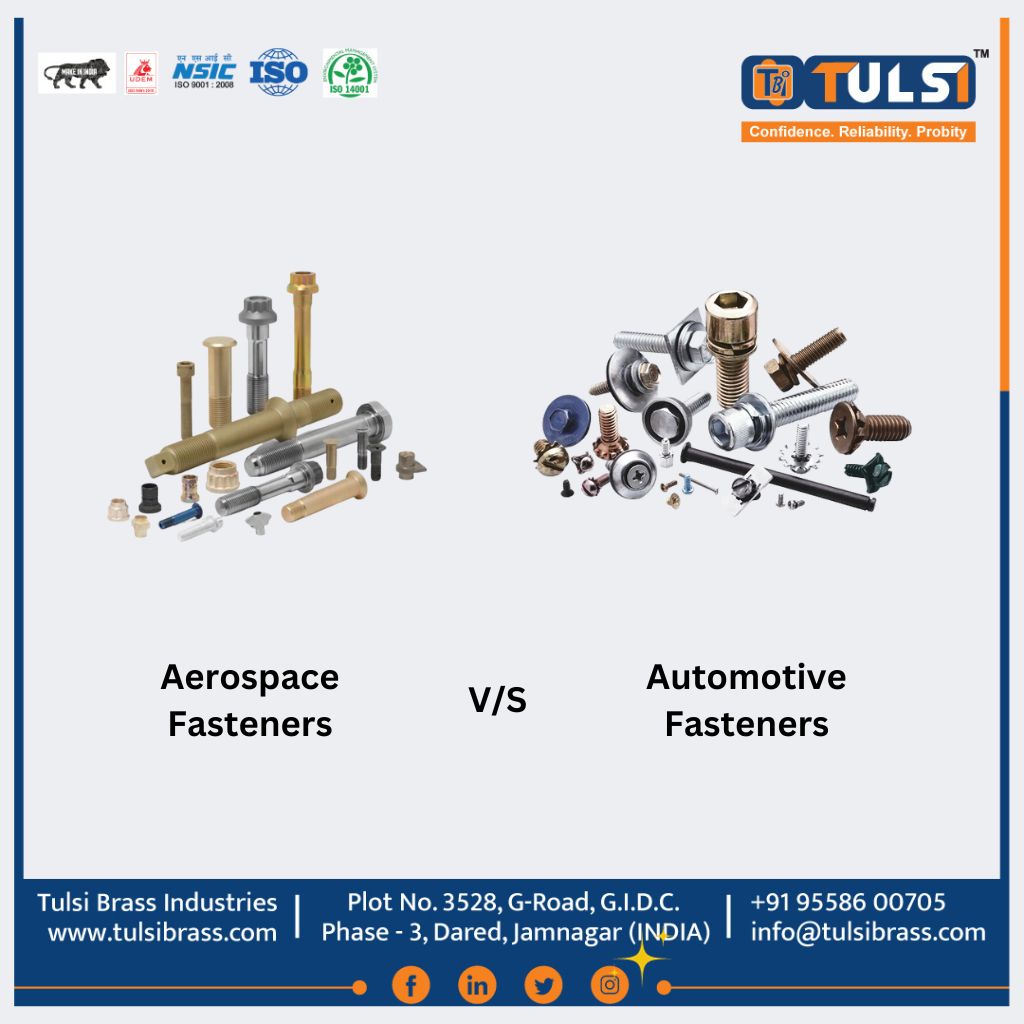Aerospace Fasteners Versus Automotive Fasteners: Comparison
When it comes to the world of fasteners, distinguishing between aerospace and automotive fasteners plays a crucial role in understanding their diverse applications and material compositions. Both industries demand precision, reliability, and durability in their fastening solutions, yet the specific requirements and functions of fasteners vary significantly.
Understanding Brass Fasteners: The Versatile Choice
Brass fasteners stand out for their versatility, offering exceptional corrosion resistance and electrical conductivity. They find extensive use in both aerospace and automotive applications, especially in electrical components, decorative fittings, and plumbing fixtures.
Copper and Copper Alloys Fasteners: Balancing Strength and Conductivity
In the realm of aerospace, copper and its alloys, including bronze and brass, serve as go-to materials due to their superior electrical conductivity. However, in automotive settings, these fasteners are primarily utilized in specialized electrical systems or as connectors due to their conductivity properties.
Mild Steel Fasteners: The Strength in Automotive Engineering
For automotive purposes, mild steel fasteners dominate due to their robustness and cost-effectiveness. Their high tensile strength and resistance to shear forces make them the preferred choice for various structural components in vehicles.
Stainless Steel Fasteners: Unparalleled Corrosion Resistance
In both aerospace and automotive sectors, stainless steel fasteners reign supreme in applications that demand exceptional resistance to corrosion and oxidation. Their durability, coupled with resistance to harsh environmental conditions, makes them indispensable in critical assemblies.
Silicon Bronze Fasteners: Striking a Balance Between Strength and Corrosion Resistance
Silicon bronze fasteners find their niche in aerospace due to their commendable strength and resistance to corrosion in elevated temperatures and harsh environments. In contrast, their use in automotive applications is limited but may be seen in specific components requiring resistance to corrosion.
Choosing the Right Fastener: Key Considerations
When selecting between aerospace and automotive fasteners, factors like material composition, environmental conditions, load-bearing capacities, and longevity are critical. Aerospace applications prioritize lightweight, high-strength materials, while automotive settings often prioritize cost-effectiveness without compromising durability.
As we delve deeper into the nuances of aerospace and automotive fasteners, it becomes evident that their differences underscore their individual significance in propelling engineering and technological advancements forward.
This article aims to shed light on the varied aspects of fasteners in the aerospace and automotive industries, offering insights into their applications and material compositions while maintaining a focus on their distinctive functionalities.
Remember, choosing the appropriate fastener requires a comprehensive understanding of its intended use and the specific demands of the industry. Whether it’s brass, copper alloys, mild steel, stainless steel, or silicon bronze fasteners, each serves as a vital component in the intricate machinery that powers the aerospace and automotive worlds.
By leveraging the knowledge of these fasteners and their applications, engineers and manufacturers can continue to push the boundaries of innovation, creating safer, more efficient, and technologically advanced products for both the aerospace and automotive sectors.
Conclusion
In essence, the choice between aerospace and automotive fasteners boils down to their intended application, material composition, and specific requirements. Each type of fastener serves a unique purpose, catering to the demands of these distinct yet interconnected industries.
In conclusion, the diversification of fasteners allows for the seamless functioning of both the aerospace and automotive sectors, contributing to advancements in technology, safety, and innovation.
Would you like to delve deeper into the world of fasteners or have further queries? Feel free to explore additional resources or reach out for expert advice tailored to your specific needs.
*This AI-generated content should be independently verified please exercise caution and verify the information for current decisions.

